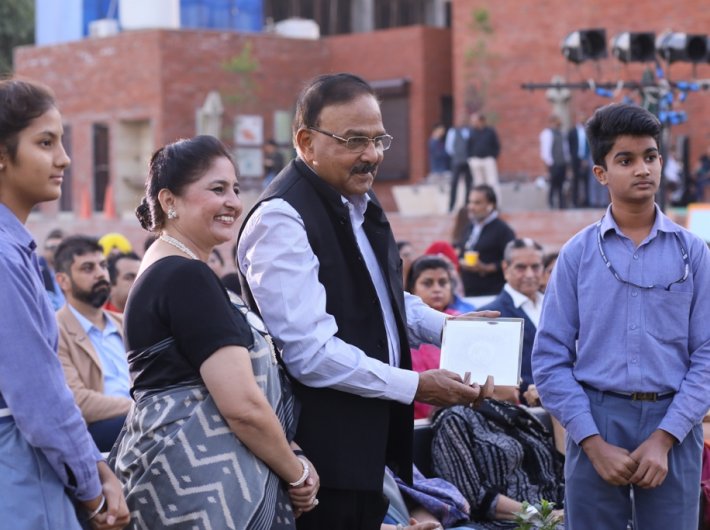We need NGOs or CSOs to act as the ‘Third Sector’ of governance and developmental process
India has the largest share of the deprived and the marginalized among the 1.3 billion-plus, out of the 7.9 billion-plus inhabitants of the world, who are said to be living without shelter or basic amenities required for human existence. Clearly, we need to introspect as to why despite being the fourth or sixth biggest economy in the world alongside our highly acclaimed democratic governance structures and an inclusive society, we have failed to associate our mute marginalized millions in the task of re-engineering our society towards basic subsistence, equitable development and growth. The Aspirational India has created new demands co-existing with the problems arising out of India’s huge poverty – nearly a third of the people below poverty line – which gives us the 131st position in terms of the Human Development Indicators (HDIs) and the widening huge gaps between the rich and the poor. In such a scenario, the voluntary sector’s interventions cannot be confined to limited supplementary functions or only peripheral and often in the critical or advisory role to the government.
There is a distinct gap between the not-so-efficient public administration and the profit-oriented private sector that is getting stronger by the day, particularly in crisis situations that we face. This situation obviously creates the big space and the need for the non-governmental organisations (NGOs) or civil society organisations (CSOs) to act as the ‘Third Sector’ of governance and developmental process, or perhaps the ‘Fourth Sector’ if we consider the democratic institutions and elected bodies separately from the bureaucratic structures and the corporate, as three other sectors.
The monolithic approach towards the voluntary sector does not create any positive impact while complementing the efforts of the government. Perhaps, it is debatable whether an alternative system of governance and development, as it was resorted to in the case of Bangladesh through massive NGOs like Bangladesh Rural Advancement Committee (BRAC) and Gramin Bank and in some other third-world countries, might help us to some extent. The CSOs have the most crucial role to play in national development when the country is moving towards inclusive governance through a mix of governmental and voluntary actions, particularly in the crucial sectors of education, child care, protection and development, health care, environment etc.
Corporate Social Responsibility and CSOs
The importance of inclusive growth is now widely recognized as an essential part of India’s quest for development. It reiterates the country’s commitment to include such sections of the society in the growth process, which have remained excluded from the mainstream of development. The latest, 2021 amendments in Section 135 CSR Rules and Schedule 7 that specifies the areas of CSR expenditure have included the Societies and Trusts along with the Section 8 Non-Profit companies which alone appeared to be the preferred option – thanks to NITI Aayog for acceding to our demand through the Ministry of Corporate Affairs. The National CSR Data Portal, instituted by the Ministry of Corporate Affairs for data dissemination, provides information reported by companies on CSR, including implementation details, amount spent, activities undertaken, geographical areas covered etc. The Department of Information Technology, Electronics & Communication, Government of Telangana, set up a platform ‘T-Social Impact Group (T-SIG)’ in April 2018 with an objective of connecting all the CSR stakeholders, facilitating knowledge sharing and building synergies among them, thereby making CSR interventions across the state effective and sustainable. T-SIG connects the industrial bodies of Hyderabad and Telangana together with the different Government Departments and Non-Profit Partners of the state to enable efficient utilization of resources.
The Social Stock Exchange (SSE) proposed by SEBI in June 2020 is envisaged as a platform that shall offer visibility to investors and donors, and also institutionalize a reporting standard and a standardized framework for measuring social impact. It is a welcome move in the direction of bridging the funding gap for NGOs and creating an investment ecosystem for social enterprise.
In times to come, the regulatory provisions being more stringent, both for the CSOs and the Corporate, we can visualise the emerging role of this important sector constituted by civil society through the voluntary organizations to fill the gap. The areas like alleviation of hunger and poverty, promoting education and vocational skills particularly in the light of the unserved segments of population within the framework of the National Education policy 2020, gender equality and women empowerment besides environmental sustainability, give immense opportunities for CSR-CSOs partnerships.
In fact, this sector cannot be just viewed any more as ‘a charitable work’, but it has to take its position as a major partner in the good governance building process along with the government, democratic and bureaucratic system and the market-driven corporate and business houses.
Amod K. Kanth, former DGP of Delhi, is General Secretary, Prayas JAC Society. He is also Joint Coordinator of NITI Aayog’s Standing Committee on CSOs. This article is based on his speech at Coal India Limited's CSR and Sustainability Conclave, held on May 6-7.
